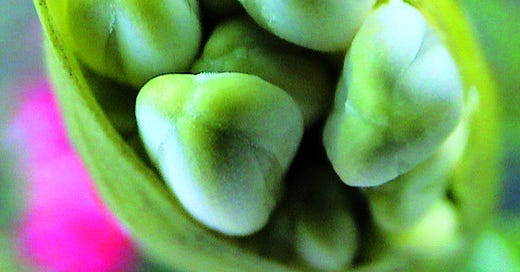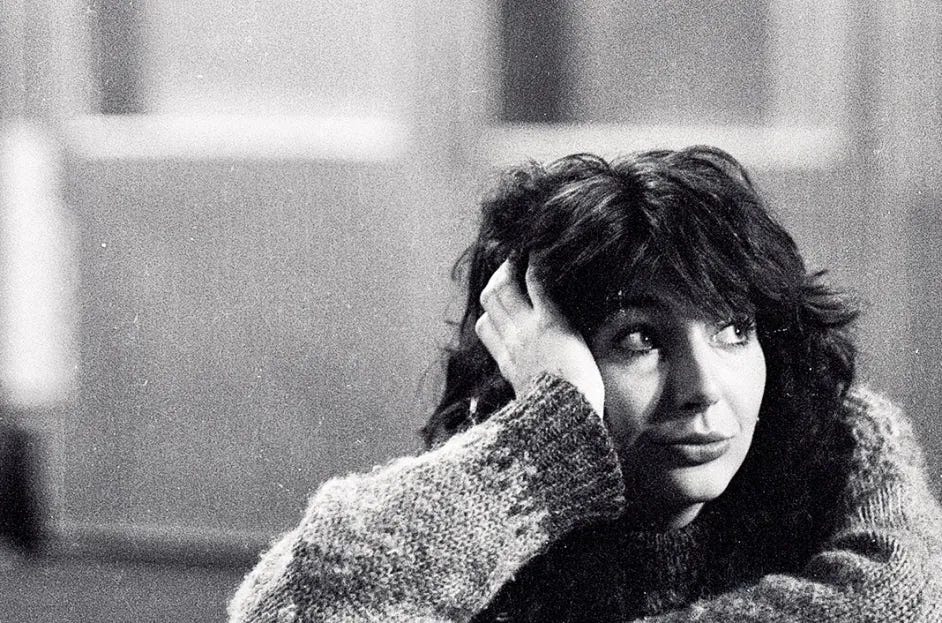2005: Extraordinary Machine - Fiona Apple
Looking back at 30 years of music | Fiona Apple, Tori Amos, Kate Bush
A few months ago I borrowed Tom Doyle’s Running Up That Hill: 50 Visions of Kate Bush from my local library, a great book that runs through the story of Bush’s life and career from her childhood in Bexleyheath; through her early performances in bars with The KT Bush Band and all of her albums, promotional activities and music videos, live appearances and tours.
Throughout the book, Doyle refers extensively to an interview that he held with Bush herself, ahead of the release of her 2005 album Aerial. Something else that noticeably comes up throughout the book is the author’s opinion of Tori Amos. There are a few asides that single her out as a Kate-Bush-copycat; a watered down version of the British genius and someone you don’t need to listen to when you’re already a fan of the real thing.
It seems that Doyle wasn’t alone in making this unfavourable comparison (he actually even spoke to Amos directly about her Kate Bush connection for Q Magazine in 1998), as others in reviews and interviews and on internet forums and beyond have made similar remarks and connections between the two, as well.
I’d never listened to Tori Amos before reading Running Up That Hill so was unfamiliar with her work, but it wasn’t long before I stumbled across her name again. When doing some preparatory reading ahead of writing this piece about Fiona Apple’s 1999 masterpiece When the Pawn…, I found that Apple had been herself, in turn, fairly unfavourably compared to Tori Amos in reviews or by fans, and at times written off as being nothing more than Tori Amos-Lite.
I think it is indicative of how lazy the music press can be that when a creative and out-of-the-ordinary woman artist comes along, she can only be written about or described in terms of other women like her, and that they must be pitted against each other. In the eyes of a lot of male music critics and fans there is only room for one ‘strange’ singing female songwriter.
If you really wanted to compare the three and their music, then there was no better year to do so than 2005. Despite each having long careers, one thing that the three women really do have in common is that they are not the most prolific artists. Bush has released 10 albums since 1978, Amos has made 16 since 1992, while Fiona Apple has released only 5 since 1996. In all that time, it was only in 2005 that the three released an album in the same year as each other (Aerial, The Beekeeper and Extraordinary Machine).
To my ears, there are some quick and obvious comparisons that can be drawn between the three artists. They all write and sing their own material, they all play the piano and experiment with different forms and sounds and styles. They all draw considerably on their experiences as women to inform their writing and work. They are all fiercely individual and focused in their sounds and their methods and they are all recognisably and unapologetically themselves. Perhaps, thinking about it, these are really the things that draw the disparaging, condescending and ultimately boring comments from the men that write about them.
It had been 12 long years since Kate Bush had released a new album by the time that 2005’s Aerial hit the shelves. In fact, in those twelve years, she had barely appeared in public at all.
From her first album The Kick Inside in 1978 up until 1992’s The Red Shoes, Bush had steadily released a series of brilliant, joyous, fascinating and increasingly thought-provoking records. She made you think and laugh and dance and dance and dance. Her music contains real magic, her music is transcendental and once you really hear it, can change your life. In just 14 years, she released some of the greatest, most ground-breaking and life-affirming music that anyone ever released. And then, for almost the same amount of time, she was gone.
Aerial can at times be described as all of those things too: brilliant, joyous, fascinating, thought-provoking, ground-breaking and life-affirming but it is also at times feels maddening, confusing, challenging and confounding. It is not my favourite of her records, probably by quite some distance, but I am enjoying it more with each extra listen, and finding new ways into it.
I love the opener, King of the Mountain - inspired by the idea that Elvis Presley might still be alive and happy somewhere (here’s hoping) - and even more than that, I love the song that closes the first half of the album, A Coral Room. Both a prayer and a meditation on motherhood; what it means to be a mother and what it means to lose one. The music and melody recall Bush’s timeless classic This Woman’s Work, but are more poignant than even that beautiful track. Bush’s voice, which had previously been so impossibly high, has dropped a little deeper (though not by all that much much) which lends her words a weight of experience and gravitas and maturity. This song is a marvel, and moves you deeply each time you hear it.
Something that struck me listening to this album is that it really doesn’t sound like anyone but Kate Bush, and couldn’t have been made by anyone else but her. It feels like the sum total of all her work that went before it; a mature work crafted by the very same hands that brought us The Dreaming, Hounds of Love and The Sensual World.
It hadn’t quite been 12 years since Fiona Apple had last released an album, in fact it was half as long as that, but it might have ended up being even longer if not for the huge demand and fan pressure that was mounting against Apple and Epic Records to release the record.
Extraordinary Machine was originally due in 2002, later pushed back to 2004 and then eventually put on the shelf in perpetuity when the label decided they didn’t hear anything that could be released as a single from the songs that Apple offered to them. Slowly the tracks started making their way into the world and onto the internet through torrent sites; onto radio and into public consciousness. They began building up a buzz and life of their own. Hearing the quality of the work, Apple’s fans begged and petitioned Sony to release the record.
And, on October 4, they got their wish. Except, not exactly. Between the leaks in 2004 and 2005 and the album’s release, Apple went back to the studio to re-work and re-record the majority of the songs.
The final finished product is incredible from start to finish, and entirely worth the wait. Just like its predecessor When the Pawn…, Extraordinary Machine is a perfect album. Sometimes, actually, most of the time, it might be my favourite Fiona Apple album and contains - in Extraordinary Machine, Get Him Back, Window, Oh Well, Please Please Please and Red Red Red - some of my favourite Fiona Apple songs, some of my favourite Fiona Apple lyrics and some of my favourite Fiona Apple vocal and piano performances.
But then again, I always think “this is my favourite Fiona Apple album” and “this is my favourite Fiona Apple song” about whichever one I happen to be listening to at the time.
Notable Releases
Coldplay - X&Y
Franz Ferdinand - You Could Have It So Much Better
Gorillaz - Demon Days
John Prine - Fair & Square
M.I.A - Arula
Madonna - Confessions on a Dance Floor
Oasis - Don’t Believe the Truth
Paramore - All We Know is Falling
Sleater-Kinney - The Woods
The White Stripes - Get Behind Me Satan
Next week/year: Bob Dylan sings about Alicia Keys. My Chemical Romance march a Black Parade and a young country singer by the name of Taylor Swift makes her debut.







I was listening in the car today to Fiona Apple's "Fetch the Bolt Cutters." I was suddenly struck by these lines: "I grew up in the shoes they told me I could fill / Shoes that were not made for running up that hill / And I need to run up that hill / I need to run up that hill / I will I will I will I will I will." Is that an allusion to Kate Bush's "Running Up That Hill" that I never noticed before? Probably so. I'm sure lots of other listeners caught that immediately. But for me, Matthew, it took reading your essay to open my ears. Thanks!